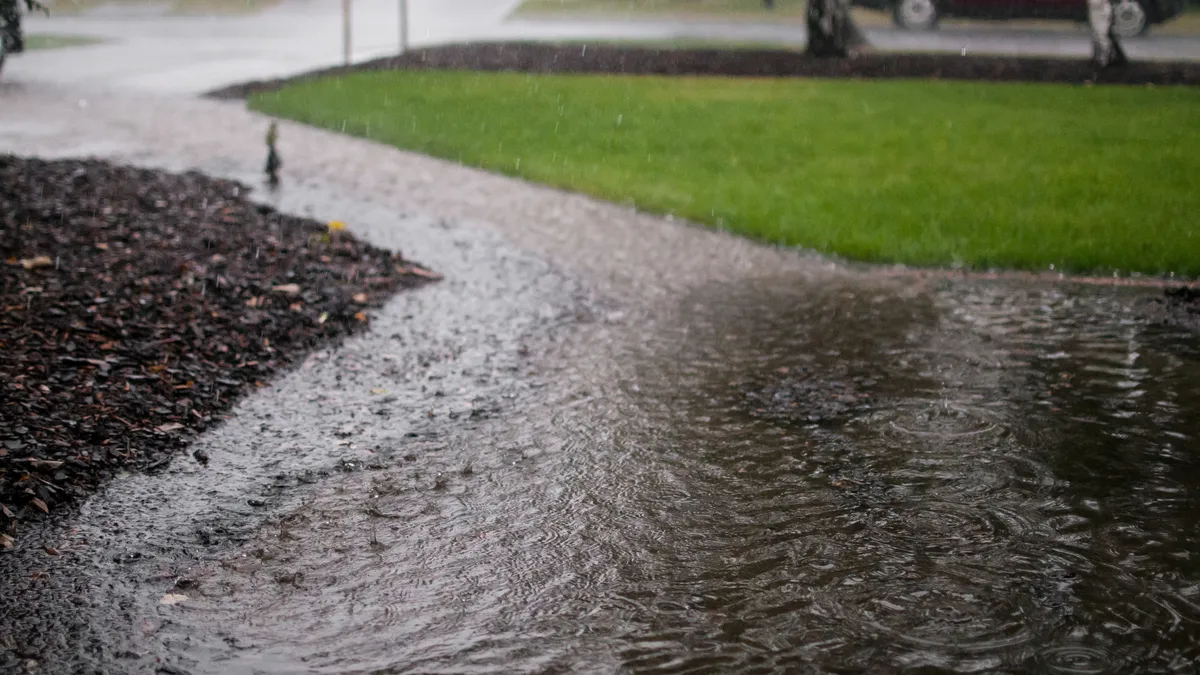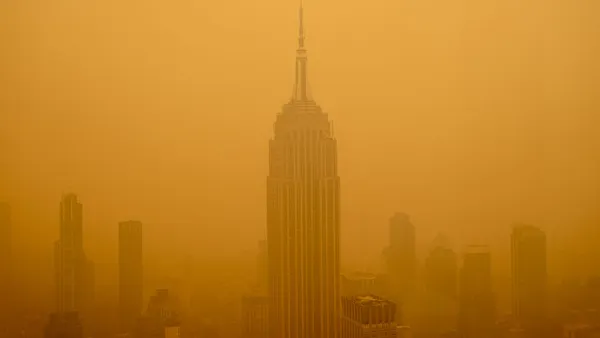Dive Brief:
- The Urban Land Institute announced this week that five of its district councils around the U.S. will explore a variety of potential climate adaptation strategies through its Resilient Land Use Cohort. The cohort program provides a forum for technical assistance and information sharing on resilience best practices.
- Participating district councils will bring together community representatives and ULI’s network of real estate and land use experts. The forthcoming group follows an initial round of the program in 2020.
- Colorado will focus on wildfire recovery and enhancing community resilience and affordability; Los Angeles will look into the development of a resilience hub network; New Orleans will consider scaling green infrastructure solutions; New York will center on advancing resilient retrofit policies and incentives; and Philadelphia will explore land swaps for homes in flood zones.
Dive Insight:
While the purpose of the cohort isn’t necessarily to immediately launch projects, ULI’s goal is to engage cities, community stakeholders and other experts to discuss best practices locally, while also learning from other cities involved in the cohort nationally, according to ULI leaders. The first cohort led to numerous actionable recommendations for each issue that each region explored.
Marianne Eppig, director of resilience at the ULI Randall Lewis Center for Sustainability in Real Estate, said that while a lot of things went well with the first cohort, “what we're trying to amplify with the second cohort is the equity piece.” During this cohort, ULI will be offering $10,000 grants to community-based organizations to partner with district councils, Eppig said. “This time, we really want to make sure local community-based organizations, especially in vulnerable communities, are paid to participate from the beginning of the program,” Eppig said.
What that will look like for the ULI Philadelphia district council, for example, will be a technical assistance panel to be held in November, co-sponsored by the city of Philadelphia’s Office of Sustainability and Eastwick United, a community organization representing the city’s lowest-lying, flood-prone neighborhood.
“There's an opportunity here to develop some of those relationships,” said Kevin Moran, executive director of ULI Philadelphia, so that when recommendations are put out, “both the city and the community development corporation will have this network of folks they can turn to when they have questions around implementation.”
The community is curious about the possibility of so-called land swaps, a concept that would entail swapping large tracts of vacant, city-owned property at higher elevations within Eastwick, in exchange for flood-prone and sinking homes built in the 1960s and 1970s that placed residents in harm’s way, according to information from ULI Philadelphia. In turn, those previously occupied properties could be turned into carbon-neutral wetlands and open recreational areas.
Moran said at the broader cohort level, New York and New Orleans, with their experience with floods, could be particularly helpful in the discussion.












